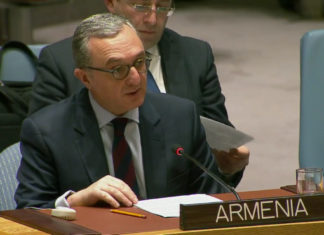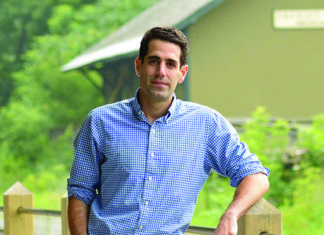By Dan Bilefsky
NEW YORK (New York Times) — Fethiye Cetin recalled the day her identity shattered.
She was a young law student when her beloved grandmother Seher took her aside and told her a secret she had hidden for 60 years: that she, the grandmother, was born a Christian Armenian and had been saved from a death march by a Turkish officer, who snatched her from her mother’s arms in 1915 and raised her as Turkish and Muslim.
Her grandmother revealed to her that her real name was Heranus and that her biological parents had escaped to New York. Heranus, Cetin learned, was just one of thousands of Armenian children who were kidnapped and adopted by Turkish families during the genocide of up to 1.5 million Armenians by Ottoman Turks between 1915 and 1918. These survivors were sometimes called “the leftovers of the sword.”
“I was in a state of shock for a long time — I suddenly saw the world through different eyes,” said Cetin, now 60. “I had grown up thinking of myself as a Turkish Muslim, not an Armenian. There had been nothing in the history books about the massacre of a people which had been erased from Turkey’s collective memory. Like my grandmother, many had buried their identity — and the horrors they had seen — deep inside of them.”
Now, however, Cetin, a prominent member of the estimated 50,000-strong Armenian-Turkish community here and one of the country’s leading human rights lawyers, believes a seminal moment has arrived in which Turkey and Armenia can finally confront the ghosts of history and possibly even overcome one of the world’s most enduring and bitter rivalries.
She already has confronted her divided self, which led her from Istanbul to a 10th Street grocery store in New York, where her Armenian relatives had rebuilt their broken lives after fleeing Turkey. (Many of the Armenians who survive in Turkey today do so because their ancestors lived in western provinces when the killings occurred, mostly in the east.)
The latest tentative step toward healing generations of acrimony between the two countries took place in October on a soccer field in the northwestern Turkish city of Bursa, when President Serge Sargisian became the first Armenian head of state to travel to Turkey to attend a soccer game between the two countries’ national teams. In this latest round of soccer diplomacy, Sargisian was joined at the match by President Abdullah Gul of Turkey, who had traveled to a soccer match in Armenia the year before.









